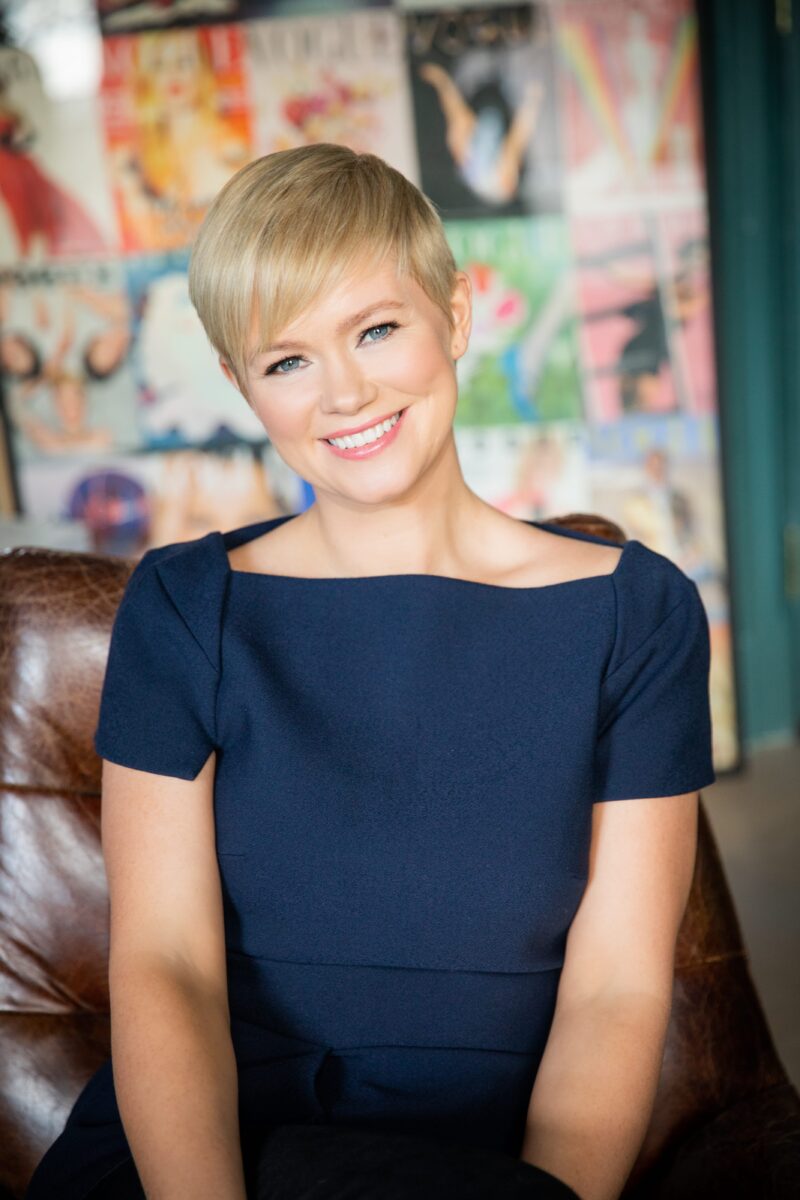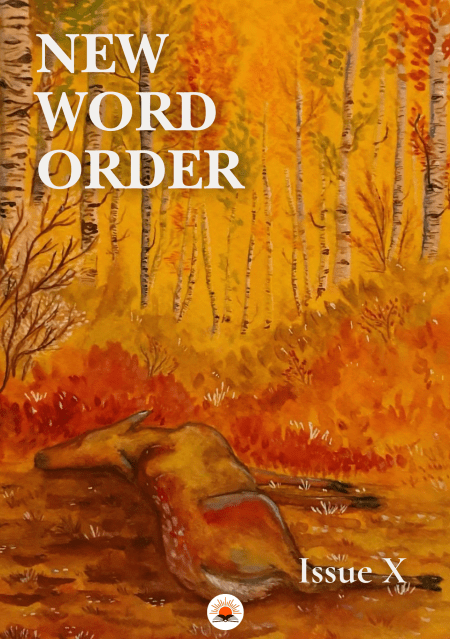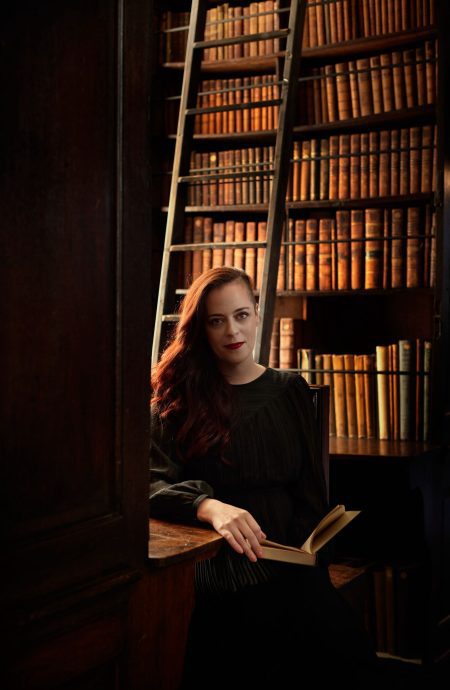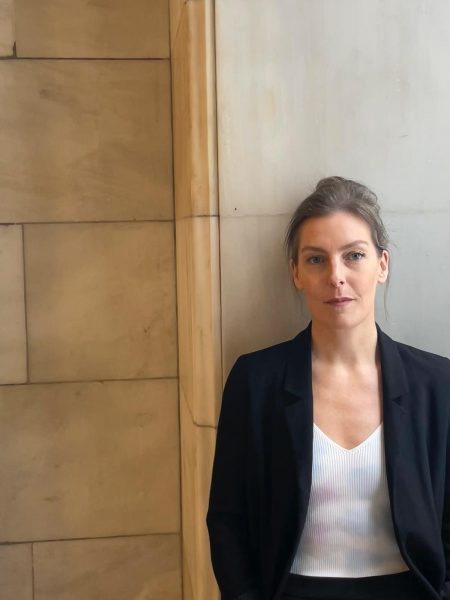Cecelia Ahern is an Irish Author and an international best-seller, most commonly known for her novels PS, I Love You and Where Rainbows End (Love Rosie). Cecelia is published in nearly fifty countries and has sold over 25 million copies of her novels worldwide. Two of her books have been adapted into major motion picture films, with her recent novels Postscript and Roar to be following suit with star-studded casts, featuring actresses Nicole Kidman and Hilary Swank.
In this interview, Cecelia reflects on finding inspiration during lockdown, gives advice to young writers trying to find themselves in the creative industry, and also gives us a sneak peak into her upcoming novel, Freckles.
Q: Hi Cecelia, thank you so much for agreeing to take part in our first interview for issue two of The New Word Order! We’re thrilled to have the chance to talk to you as you are a true inspiration, especially to Irish writers. This issue’s theme is ‘Change’ which reflects the change we are all currently experiencing in our lives right now. In what way has this change impacted your own writing?
A: There are so many answers to this question I don’t know where to begin. One answer is, it hasn’t changed my writing life because I work from home anyway, alone, in isolation so compared to others who are experiencing working from home for the first time without physical contact of their colleagues, it hasn’t been a big adjustment for me. Another answer is that my writing has been interrupted by home schooling two children and having a toddler at home. Another answer is that being able to endlessly walk with my new-ish born baby when lockdown began at a peculiar worrying time meant that I was able and willing to disappear into my imagination and have time to think about and develop stories in a way I may never have.
Another answer is that my most recent novel written while in lockdown is made up of fragmented thoughts and I wonder if that is because of the time constraints on me. Because I didn’t have the time to sit and write full chapters as I usually would have, my character’s story is told in a series of moments, because it was written in a series of moments that I had to grab for myself.
And finally, during the first lockdown I wondered in those early days when writing thinking about my next novel if I should address the pandemic, if anybody could ever create something without mentioning it ever again as it has been so life-changing. In those early days we didn’t know what the other side of the pandemic was going to look like. We still don’t, but we’re almost there. When I wrote my latest novel (not out until 2022), I decided not to reference it at all, I am so tired of ‘it’ saturating every part of our lives, I don’t want to write about it at all. Not yet anyway, until I have time to absorb it and understand it and perhaps then I’ll have something to say.
“Our minds have all travelled to places they’ve possibly never travelled to before.”
Q: Our magazine’s main audience and submissions comes from young aspiring writers. What advice would you give to those that are finding this change restrictive to their writing?
A: I spoke with a writer friend who said that he was finding it difficult to write in the early days, in the initial lockdown, because what was there to daydream about? His thoughts just couldn’t go there. I, on the other hand, was living in my imagination just to escape what was going on, and managed to develop and write a story in lockdown because of lockdown, I think. But I’m finding it difficult to read other people’s thoughts and stories because I’m so full of my own. So we are all different. I think that it has been a time where regardless of the quality of our thoughts, our minds have all travelled to places they’ve possibly never travelled to before. What helps me write is silence and calm. The calm and silence is not in your head, so whatever is going on in there, find as quiet and peaceful a place as you can and just get whatever your thoughts are down on paper. Just write. There’s never an easy solution, just write.
Q: You wrote your first novel ‘PS I Love You’ back in 2002 when you were only twenty-one; the age of many of our editorial team. Looking back, what advice would you give to your younger self?
A: It intrigued and bothered me at the time that my age was so heavily focused on. I felt like a mature adult that had experience of the world but this seemed to confuse critics at the time. I look at twenty one year olds now and I’m surprised at what I achieved so young, but it does remind me to also not treat twenty-one year olds as though they are vacuous and inexperienced. I think that as people get older they can forget the depth of their thoughts and experiences at a younger age.
At twenty-one I was emotionally intelligent and not a child, but there was a lot about the publishing industry that I didn’t know or understand. I’m not sure that I would change anything because that journey was important but I think I got swept along in the work and left a little of my life behind. I have a strong work ethic and I think being the way I was, helped me to build the career that I have but I could and should have taken care of myself a little better. I also should have asked more questions and spoke up more. But I’d still tell myself the same thing now.
Q: Did you have many attempts at writing before publishing your first novel? And if so, have you ever re-visited your old drafts?
A: When I was fourteen years old I started writing my first novel, ‘Beans on Toast and a Bottle of Beer’ but unfortunately I never finished it. I still have the copy now! But seriously, PS I Love You was my first attempt at getting something published and I suppose there are two reasons for that. Firstly, I had completed my degree and it was time to look at the rest of my life and who and what I wanted to be, and secondly, I had never felt so passionate about anything I had written before. I was proud of PS I Love You and wanted to share it with others, whereas anything I had written before was private.
And no, I have never revisited old drafts with the consideration to publish them.
“When I’m writing, I see the scene, it’s like I’m watching a film in my head…”
Q: Considering your musical background and performing in the Irish national final for the Eurovision Song Contest, has there been any music that has inspired your writing?
A: I don’t listen to music while writing but there are certain albums and songs that I have listened to before and after writing, or while taking writing breaks. Specifically I remember listening to Paulo Nutini’s Iron Sky and Beyonce’s Lemonade a lot while writing Flawed and Perfect and I remember that more than anything else because they were YA novels and I was constantly asked about music for all of those interviews. If I reference a song in a novel then I must listen to it to invoke the atmosphere of the particular scene.
Q: A lot of your work has been adapted into films or TV series, such as PS I Love You and Where Rainbows End (Love Rosie). Has knowing that your stories could end up on the big screen changed your writing style?
A: I think that they’ve been adapted because of the writing style. My writing is very visual, when I’m writing, I see the scene, it’s like I’m watching a film in my head and then I write what I see. My novels are also largely high concept with premises that have a strong hook which appeals to film and tv producers. I have never written a book specifically for it to be a TV show or film because I think that would destroy the integrity of the novel being a novel. However when I wrote ROAR, my first collection of short stories, I wanted to bring them to TV immediately before they were even published. They’re a peculiar whimsical collection quite different to my novels, they’re very visual and I didn’t think my publishers would want to publish them so I was focusing on bringing them to TV. They got TV’s attention and then the publishers wanted to publish.
Q: Our team at The New Word Order have been reflecting recently on books that changed us. Have any books changed you? And if so, in what way?
A: I can’t think of books that specifically changed me, no, but there are stand out books in my life. The Famous Five, Sweet Valley Twins and The Babysitters Club represent the first books that got me hooked on reading as a nine year old. I read The Celestine Prophecy by James Redfield during a period of great change and transformation in my life which opened my eyes to so much. The Time Traveller’s Wife by Audrey Niffenegger, The Tiny Wife by Andrew Kauffman, The Hen Who Dreamed She Could Fly by Sun-Mi Hwang, The Peculiar Life of a Lonely Postman by Denis Theriault are my ideas of the perfect books and a left-of-field genre I adore.
“Don’t look at what everyone else is doing. You do you.”
Q: A lot of our readers are young artists and writers trying to find themselves in the creative industry. What advice would you give our readers venturing into this industry, and perhaps, embarking on the tumultuous road of writing?
A: We all have a unique voice. I write with the voice I hear in my head, my voice, the inner me. I suppose that’s our conscience. That’s the voice that spills out onto the page. As soon as you do that you will immediately be different and unique. Be inspired by other authors and novels but don’t try to imitate. Don’t try to write what’s popular in the market or follow trends, always do your own thing, the right person will find you at the right time. Everyone needs a champion, someone to believe in you because all opinions are so different. Mostly, your opinion is the one that counts because everyone else will say something different, so you have to listen to your gut. Don’t be precious, don’t get defensive. Be pleasant to work with, but be firm in who you are. Open your mind, tell a story from a new angle, have fun, write with joy and not with fear. Don’t look at what everyone else is doing. You do you.
Q: Finally, you recently revealed that your newest novel, ‘Freckles’ will be coming out this September. Do you have any hints for our readers on what to expect?
A: Freckles is about a character named Allegra Bird, whose nickname is Freckles, who is a parking warden and follows rigid rules and instructions. She hears the expression, “You are the average of the five people you spend the most time with,” and it immediately sends her on this journey of looking at who her five people are, and what they say about who she is. She decides that by following this phrase, she can curate her life, she can mould herself into being the person she wants to be by choosing the five people around her, and so she goes about finding the right five people.
It’s about the importance of human connection, of feeling like you belong and finding where you fit in, also making changes in your life to become the person you want to be and being in control of who you are.



